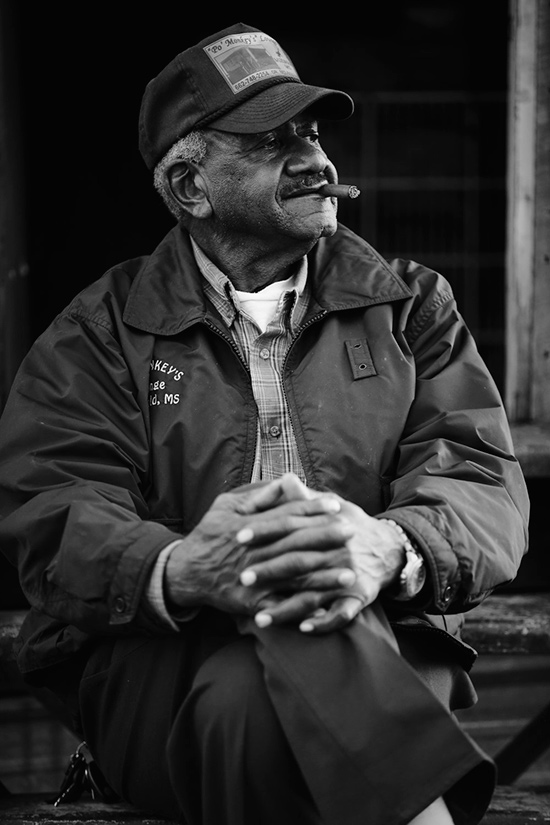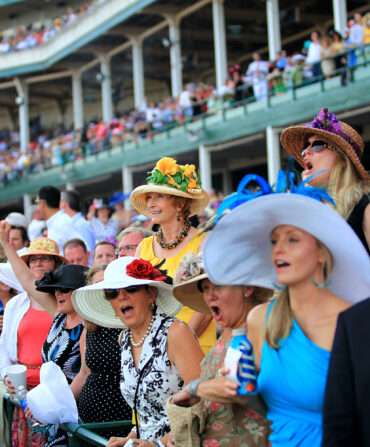The news came to me on Friday via text of all things: RIP Po Monkey. Damn. Po’ Monkey would be Willie Seaberry, a legend of the Mississippi Delta, one of the last of the true juke joint operators in the South, and an icon for blues pilgrims the world over. And that’s about all you could say: Damn. Because for so many people around the world it’s almost impossible to imagine the Delta today without Po’ Monkey and his lounge, situated between a cotton field and a gravel road outside Merigold, Mississippi.

A tenant farmer named Willie Seaberry by day, a zoot suit prince called Po’ Monkey or just plain old Monkey at night, he opened his home and his never-ending house party to the world. Po’ Monkey’s Lounge started in 1963 as a local joint for a predominantly black clientele. With time, as the blues became the subject of scholarship and tourism and people in the Delta began to recognize its value, the local crowd began to meld with museum directors, academics, off-duty sheriff’s deputies, frat kids from nearby Delta State University, and always at least a blues tourist or two. People traveled from all over, from the Northeast and the Midwest and the West Coast, from Sweden and Japan and South Africa. It didn’t matter who you were. Mr. Seaberry would welcome you with a warm smile and open arms to his Thursday night party, which he called “Family Night.”
On those nights, there would be a DJ spinning soul blues or a modern day bluesman like T-Model Ford (rest his soul, too) cranking away at his guitar. But everyone would be waiting to see what spectacular incarnation of Monkey would appear next. He was the real show. Nights at Po’ Monkey’s unfolded in a series of Mr. Seaberry’s wardrobe changes. First he would come out in something simple, a black pinstripe zoot suit with a bowler hat, chomping Clint Eastwood–style on a cigar. Then the exact same suit but red, then powder blue, then white. The colors changed as if he had switched the channel, some kind of magic. The last suit was usually a metallic silver, and all the dangling light bulbs, Christmas lights, disco balls, stuffed monkeys, and old Technicolor TV tubes that covered the shack’s interior seemed to radiate off Monkey’s glory. But that wasn’t necessarily the grand finale. Mr. Seaberry claimed to have more than a hundred suits along with various wigs, hats, and monkey masks, and there were many encores. On one occasion I saw him emerge in a grass hula skirt.
In my household Mr. Seaberry’s death came as a particularly personal loss. I got to know him while working at Delta State’s Delta Center for Culture & Learning. We produced blues concerts with him at Po’ Monkey’s, took students and international tourists there to get the real deal, and my good friends the doctors Luther Brown and Henry Outlaw, who ran the Delta Center for many years, became devoted proponents of Mr. Seaberry’s genius and the significance of the place to the Delta and the world.
Ten years ago this summer, my wife, Kate, and I got married at Po’ Monkey’s with Mr. Seaberry presiding as a kind of unofficial officiant. Our wedding party took place outside the juke, under a big white tent, but the evening progressed in much the same fashion it would have inside, the same parade of suits. The last outfit he wore wasn’t a suit at all, not in the business sense. He looked more like a cowboy in a wide-brimmed brown hat, jeans, cigar. Pretty understated except for his T-shirt, which had two large hands pointing down below his belt captioned by MC Hammer’s immortal slogan Can’t Touch This!
The next time I visited, two years later, Mr. Seaberry greeted me with his usual smile, then looked at me with real concern and maybe a bit of skepticism and asked, “You still married?”
Hanging on the wall inside our front door is a picture of Po’ Monkey’s from our wedding day. It shows a group of Mr. Seaberry’s friends watching the wedding ceremony, lighting cigarettes and pouring quarts of Budweiser into clear plastic cups, pre-gaming for the party that would follow. Behind them the juke joint looms large, close enough so you can read the now famous hand-painted signs posted on the exterior listing certain rules of etiquette, some repeated in alternative spellings: No Loud Music, No Dope Smoking, No Rap Music.
On the outside Po’ Monkey’s looked like a relic of blues history, a ramshackle assemblage of tin and plywood held together in the loosest possible way by nails, staples, and wire, and definitely made by the hand of Mr. Seaberry himself. Like the juke runners that came before him, Mr. Seaberry lived in his establishment. He slept on a cot in a little nook behind the bar, about the size of a suburban walk-in closet. There was a certain purity to the place, an authenticity that adhered to blues scholarship.

But Po’ Monkey’s wasn’t stuck in the past. Any of the old Delta blues you may have heard there was likely staged for students and tourists. On any given Family Night, you were more likely to get R&B or Southern soul, the contemporary progeny of the blues, more Bobby Rush than Robert Johnson. Theodis Ealey’s “Stand Up In It” was a house favorite back in the day. At some point in the evening—approaching midnight, although you could never tell exactly by the clock—the mood at Monkey’s would shift. The bouncy soul blues would fade out and, almost like a switch had flipped, a heavier beat kicked in, something a bit more raw and lowdown.
But let’s just leave genre out of it, because most of the things that Monkey inspired cannot be explained using industry standards. In the moment, whether you were sipping beer in the corner, shooting pool, grinding with somebody, dancing on a table, it was never about the past, always about tonight, about the party going on right now. And that’s what really made Po’ Monkey’s authentic, that sense of presence rarely achieved outside of a place like that. It was a place you could go to lose yourself for a night.
To most of the patrons and tourists who visited, little is known of Willie Seaberry’s personal life. He spent much of it plowing and planting the fields around his home. He had a family, a granddaughter who ran wild as a beautiful little girl at our wedding reception. But Mr. Seaberry was more than a man. The mayor of nearby Cleveland, Mississippi, Billy Nowell, called him a “positive influence” on Bolivar County. He was more than that, too. As Monkey, he was magnetic. And this isn’t a tribute to a man so much as a presiding spirit of a beautiful thing that’s disappearing from this world, a spirit that will certainly continue to preside over the place as long as it stands.








